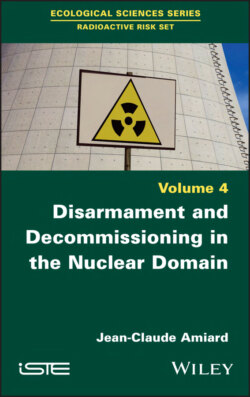Читать книгу Disarmament and Decommissioning in the Nuclear Domain - Jean-Claude Amiard - Страница 37
1.6.1. The main actions of NGOs for disarmament
ОглавлениеHistorically, after the 1948 People’s Congress for Peace in Wroclaw, the World Movement of Peace Supporters was formed and encouraged the creation of national committees. In France, the “Combattants de la Liberté”, created by Charles Tillon at the end of 1947, became the “Conseil national français du movement de la paix” in 1951, commonly called the “Mouvement de la paix”.
The Mouvement de la paix became the first NGO concerned with disarmament. Its first major action was when the World Peace Council, meeting in Stockholm, issued the Stockholm Appeal [AMI 19a] on March 19, 1950.
Thereafter, a multitude of NGOs was created and had common and coordinated actions on a cyclical basis. The first UN Special Session on Disarmament (SSD1) in 1978 was an opportunity for NGOs to organize their relations and cooperation. For example, with the creation of the International Mobilization for Survivals (ImfS) in October 1977, a coalition of national and international peace and disarmament NGOs. This coalition sent messages to the UN and above all organized an International NGO Conference on Disarmament in the spring of 1978 in Geneva, before the SSD1. This Conference brought together 500 representatives of 85 transnational NGOs and 200 national NGOs from 46 countries. At the SSD1, about 800 people from 236 NGOs were present, plus 500 Japanese delegates from 200 Japanese NGOs. However, this initiative was a failure because the positions of the states did not change at all. The roles of NGOs were therefore limited to raising awareness and educating the public.
The second UN session on disarmament in 1982 (SSD2) was the occasion for an anti-nuclear campaign, attracting one million people to Central Park, New York. The American NWFC (Nuclear Weapons Freeze Campaign) mainly mobilized on US-Soviet nuclear weapons negotiations and testing, while European organizations (the British Campaign for Nuclear Disarmament, the Dutch Interchurch Peace Council and the German Greens) were interested in intermediate-range nuclear forces (Pershing 2 and SS-20).
The next action opposed the National Missile Defense (NMD) and mobilized several hundred NGOs. NMD had two drawbacks in the eyes of NGOs: it promoted nuclear proliferation and it was very expensive. However, anti-NMD NGOs were confronted by pro-NMD NGOs, such as High Frontier, or the Centre for Policy Studies [MAR 02b].
While non-governmental organizations have become, in recent years, the driving force behind disarmament processes, it is largely as a result of the paralysis that has hit the United Nations, particularly the Geneva-based Conference on Disarmament, which “constitutes the single multilateral disarmament negotiating forum” [BOU 14].
The Luxembourg International Forum on Nuclear Disaster Reduction, held in early June 2019 in Rome, brought together experts from around the world to consolidate efforts in nuclear safety. The leaders of five major international organizations committed to the control of nuclear weapons took part in the discussions: the Nuclear Threat Initiative, the Pugwash Movement, the Global Zero Movement, the Russian Council on International Affairs and the James Martin Center for Nonproliferation Studies (United States) [SKO 19].
Unlike biological and chemical weapons, the atomic bomb is not yet the subject of a treaty prohibiting its development, production, acquisition, financing, stockpiling and transfer. On March 27, 2017, and again on June 15 of the same year, United Nations conferences were held “for the purpose of negotiating a legally binding instrument to prohibit nuclear weapons with a view to their complete elimination”. However, the chairs of the five nuclear powers, the United States, Russia, the United Kingdom, France and China, remained empty. This is the reason for the international campaign for the abolition of nuclear weapons that ICAN has begun. The Arms Observatory, the International Network of Parliamentarians for Nuclear Non-Proliferation and Disarmament and Greenpeace France are members of the International Campaign to Abolish Nuclear Weapons (ICAN) [BOU 17]. In 2019, the ICAN campaign, launched in 2007, brought together more than 540 non-governmental organization partners, including about 50 in France, in 103 countries. The ICAN-France collective was created in the spring of 2009, taking over from the French campaign for nuclear disarmament, which already included many associations (see http://icanfrance.org/).
